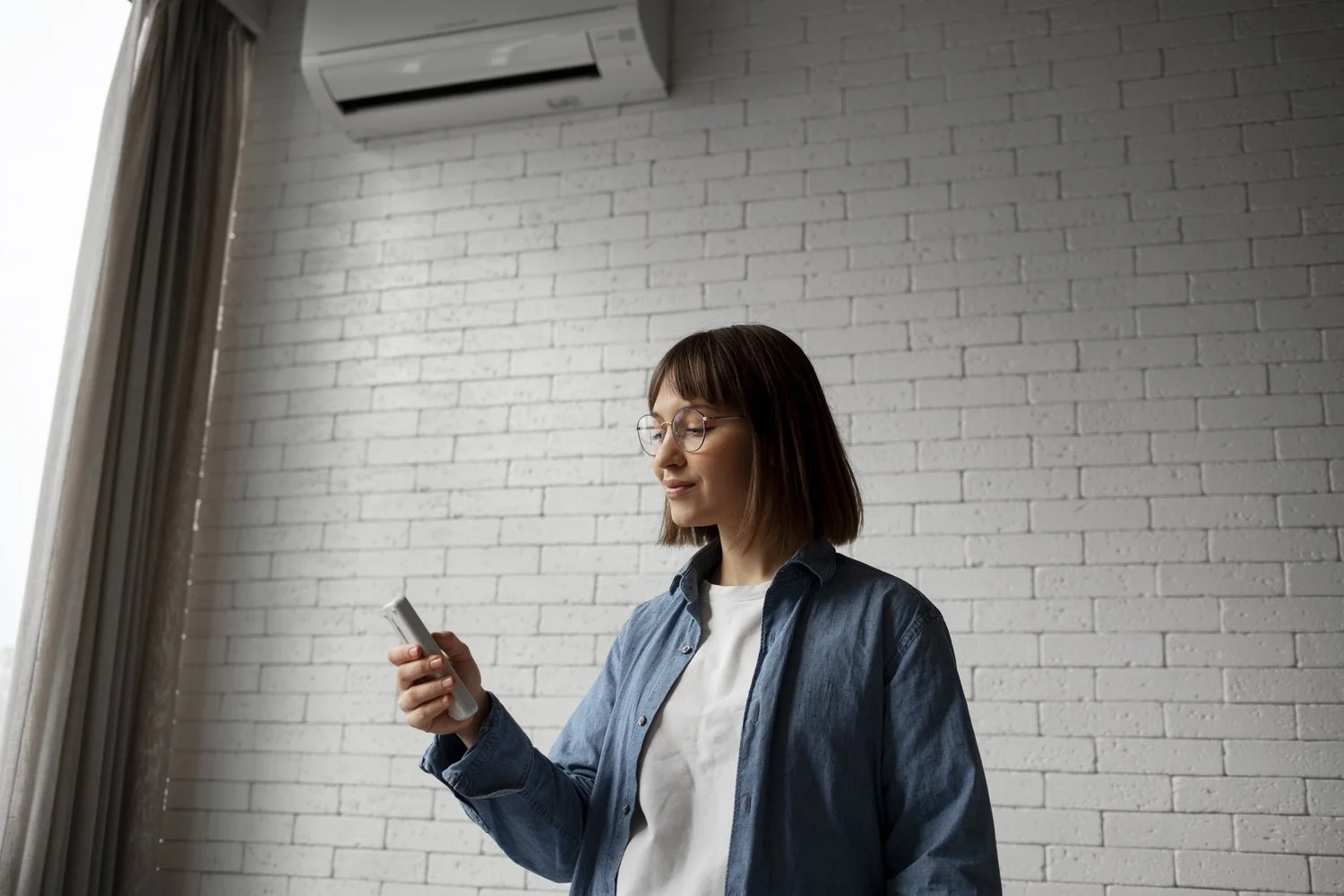Why is my AC not working?
Experiencing issues with your air conditioner (AC) can be frustrating, especially during the sweltering summer months. Understanding common causes of AC malfunctions can help you troubleshoot and potentially resolve minor problems before seeking professional assistance. Here are some prevalent reasons why your AC might not be working:
1. Power Supply Issues
Your AC unit requires a consistent power supply to function correctly. Power-related problems can prevent it from operating.
Tripped Circuit Breaker or Blown Fuse: A tripped breaker or blown fuse can disrupt the power flow to your AC unit. Check your home's electrical panel and reset any tripped breakers or replace blown fuses.
Faulty Wiring: Damaged or faulty wiring can interrupt the electrical connection. Inspect for any visible signs of wear or damage, but exercise caution and consult a professional if you're unsure.
2. Thermostat Malfunctions
The thermostat regulates your AC's operation. Issues here can lead to improper cooling.
Incorrect Settings: Ensure the thermostat is set to "cool" mode and the temperature is set lower than the current room temperature.
Dead Batteries or Faulty Thermostat: Replace the thermostat batteries if necessary. If the thermostat is unresponsive or displays incorrect readings, it may need replacement.
3. Dirty or Clogged Filters
Air filters trap dust and debris, but over time, they can become clogged, restricting airflow.
Reduced Efficiency: A clogged filter forces the AC to work harder, reducing efficiency and cooling capacity. Regularly inspect and replace filters every 1-3 months, depending on usage and environmental factors.
4. Refrigerant Leaks
Refrigerant is essential for cooling. Leaks can significantly impair your AC's performance.
Low Refrigerant Levels: Insufficient refrigerant prevents effective cooling. Signs include warm air blowing from vents and hissing noises. A professional technician should address refrigerant issues, as handling refrigerants requires specialized knowledge and equipment.
5. Frozen Evaporator Coils
The evaporator coil absorbs heat from the air. If it freezes, cooling efficiency drops.
Causes of Freezing: Restricted airflow due to dirty filters or low refrigerant levels can cause the coil to freeze. Turn off the AC to allow the coil to thaw and address the underlying issue, such as replacing the filter or contacting a professional for refrigerant problems.
Located in the outdoor unit, condenser coils release absorbed heat. Accumulated dirt and debris hinder this process.
Reduced Heat Dissipation: Dirty coils force the system to work harder, leading to increased wear and potential system failure. Regularly clean the area around the outdoor unit and schedule professional maintenance to keep the coils clean.
7. Fan Issues
Fans in both indoor and outdoor units are crucial for airflow. Malfunctions can disrupt cooling.
Faulty Motors or Belts: Worn-out belts or motor issues can impede fan operation, reducing airflow and causing the system to overheat. Listen for unusual noises and contact a professional if you suspect fan problems.
8. Leaking or Clogged Ducts
Ductwork distributes cooled air throughout your home. Leaks or clogs can compromise this system.
Air Loss: Damaged ducts can leak cooled air into unconditioned spaces like attics or crawl spaces, leading to uneven cooling and increased energy bills. Regularly inspect ductwork for visible damage and seal any leaks.
9. Clogged Drain Line
AC units remove moisture from the air, which drains through a specific line. Clogs can cause water backups.
Water Damage: A clogged drain line can lead to water damage in your home and affect the AC's performance. Regularly clean the drain line to prevent clogs.
10. Sensor Problems
AC units have sensors that measure air temperature. Misaligned or faulty sensors can cause erratic behavior.
Improper Cycling: A malfunctioning sensor can cause the AC to cycle on and off frequently or not operate correctly. Ensure sensors are properly positioned and consult a professional if issues persist.
Regular maintenance is key to preventing many of these issues. However, if problems persist after troubleshooting, it's advisable to contact a professional HVAC technician to diagnose and resolve the issue safely and effectively.
For expert assistance, consider reaching out to AirBest Heating & Cooling Systems Inc., offering reliable HVAC services in Canada for over 28 years.


